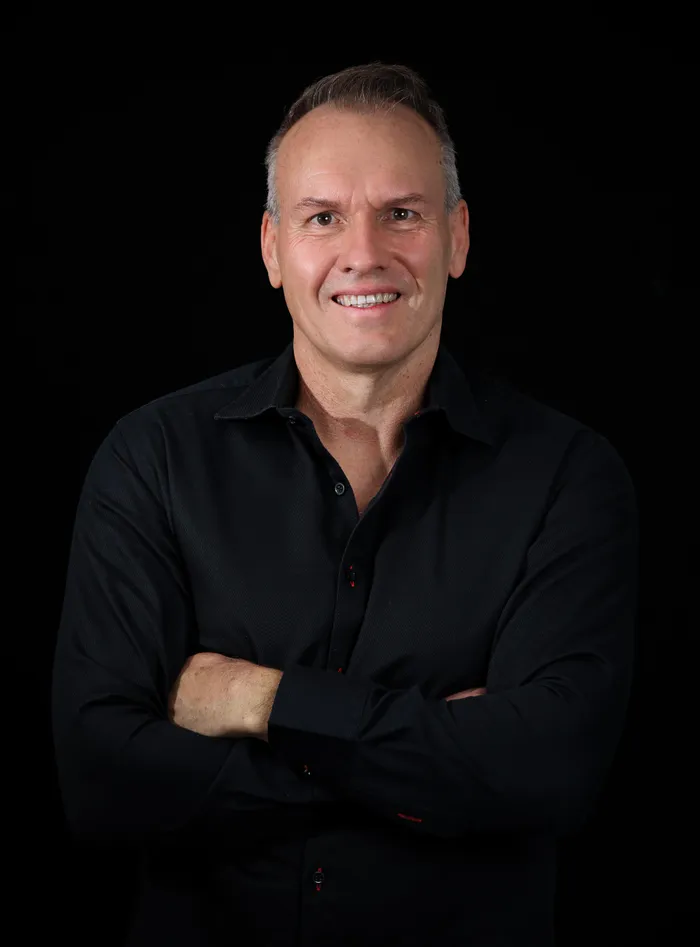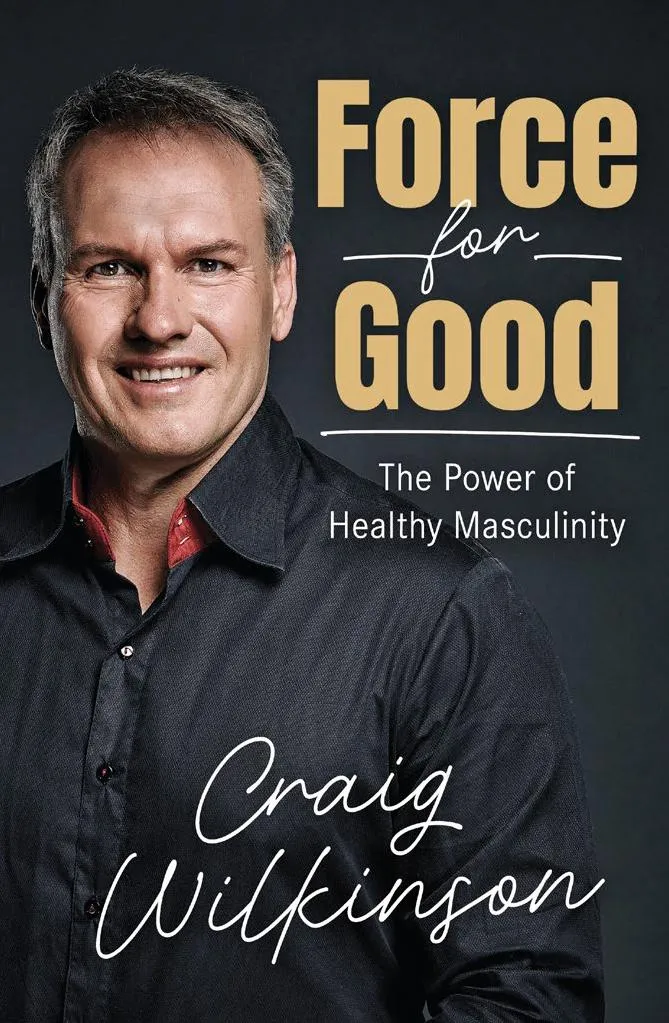Craig Wilkinson's groundbreaking book reveals how to transform toxic masculinity into positive power

South African author and men’s development expert Craig Wilkinson has released “Force for Good: The Power of Healthy Masculinity”, a book that redefines what it means to be a man in today’s world.
Image: Supplied
November brings renewed attention to men’s health, well-being and contribution to society, culminating in International Men’s Day on Wednesday, November 19.
Fittingly, South African author and men’s development expert Craig Wilkinson has released “Force for Good: The Power of Healthy Masculinity”, a book that redefines what it means to be a man in today’s world.
Wilkinson, who has spent nearly two decades mentoring men through his non-profit organisation Father A Nation (FAN), believes that the time has come to reclaim masculinity from the distortions and wounds that have made it synonymous with aggression, dominance or toxicity.
His book presents what he calls “the six virtues of positive masculinity” - a framework for men to rediscover strength, courage and purpose as forces for good.
“There has never been a more urgent time to teach, equip and inspire boys and men to live with strong, healthy masculinity,” said Wilkinson.
“True masculinity is a great gift to society. When men understand, embrace and express their masculine strength with integrity and love, everyone benefits - women, children and communities alike.”
Rethinking masculinity
Wilkinson’s message comes at a critical moment. South Africa’s femicide rate is five times higher than the global average, and gender-based violence (GBV) remains one of the country’s most persistent crises.
At the same time, rates of depression and suicide among men are rising, while public conversations often frame masculinity as something to be fixed or apologised for.
“Masculinity itself is not toxic or trash,” Wilkinson said.
“It is wounded men with a false understanding of masculinity who are toxic, not masculinity itself. We do not need to reinvent masculinity - we need to rediscover it: the noble, giving, protecting masculinity.”
He argued that positive masculinity is not about dominance or emotional suppression but about the ability to be both strong and tender, protective and empathetic.
“It is not a choice between being strong or being sensitive,” he explained. “It is about being both.”

“Force for Good: The Power of Healthy Masculinity” redefines what it means to be a man in today’s world.
Image: Supplied
The warrior and the lover
At the heart of the book lies Wilkinson’s belief that men must learn to balance two complementary aspects of their nature - what he calls the warrior and the lover.
“The warrior takes responsibility, does what needs to be done and stands up for what is right,” he said.
“He does not complain, never shirks duty and never plays the victim. He is reliable, values-driven and protective.”
However, Wilkinson warned that strength without compassion can become destructive.
“The lover is caring, gentle, understanding and able to be vulnerable. True masculinity is knowing when to be assertive and when to be gentle. Sometimes your children need you to be strong and fearless; other times, they need to see that it is okay for men to be human and emotional.”
This integration, he believed, is what creates men who are not only capable but deeply connected - men who can lead with strength and love.
Six virtues of positive masculinity
Drawing on years of mentoring men from all walks of life, Wilkinson distilled his philosophy into six guiding virtues:
- Use your strength for the good. Masculine strength, he said, is the capacity to influence the world - and that power must be used to love, serve and protect, never to harm or dominate.
- Tend your fields. Every man must take full responsibility for his life - his health, relationships, work and finances.
- Define yourself by character. True worth comes from integrity, not status or possessions.
- Build a band of brothers. Men thrive in community, not isolation. Accountability and support from other men foster growth and humility.
- Mentor the next generation. Every man has a duty to model strength and compassion for younger men.
- Make the world a better place. A good man leaves every person and place better than he found them.
Healing the wound
Wilkinson’s work through FAN has exposed him to the pain and confusion many men carry - often stemming from absent fathers or societal messages that equate masculinity with control.
“Young men are growing up in a world where masculinity is often depicted as something to be cured,” he said.
“That is damaging to their confidence and mental health. We need to restore the understanding that masculinity, when expressed with integrity, is a beautiful and powerful force for good.”
His mentoring approach combines emotional honesty with accountability, encouraging men to face their pain rather than project it onto others.
“There are two ways masculinity can go wrong,” he explained.
“Passivity is one, and dominance is the other. Men are not made to be passive or aggressive. They are made to be active, engaged and responsible.”

South African author and men’s development expert Craig Wilkinson has released “Force for Good: The Power of Healthy Masculinity”, a book that redefines what it means to be a man in today’s world.
Image: Supplied
Starting the journey
For men seeking change, Wilkinson advised that it is both practical and compassionate.
“Ask yourself, ‘What kind of man do I want to be?’ Then start intentionally becoming that man,” he said.
“Find mentors and role models. Look in the mirror and identify any attitudes or behaviours that are harmful to yourself or others. Commit to changing them, and get help where you need it.”
A force for good
Ultimately, Wilkinson hopes that the book will help reshape how society views masculinity - not as a threat but as a necessary counterpart to femininity.
“Men and women are equal but different, and that difference is beautiful,” he said. “This is not a fight for dominance. It is about co-creating a world where both can thrive.”
He envisioned a movement of “excellent fathers, mentors, role models, husbands and citizens who stand against all that is wrong in society and stand for all that is good.”
Related Topics: